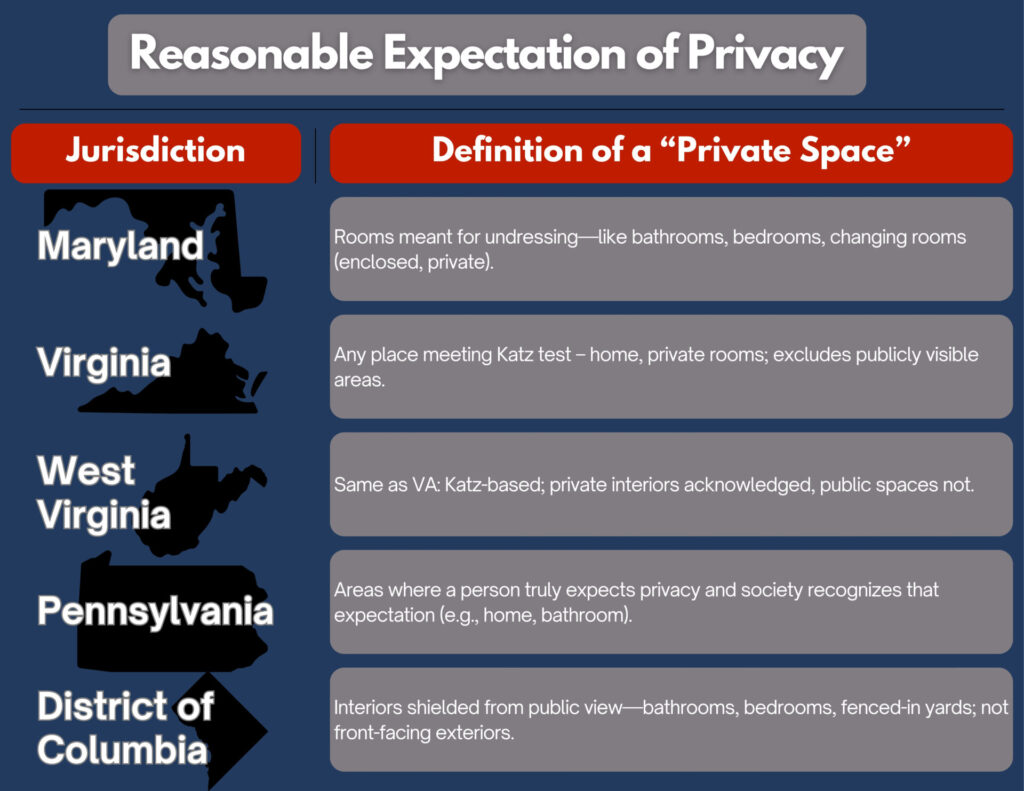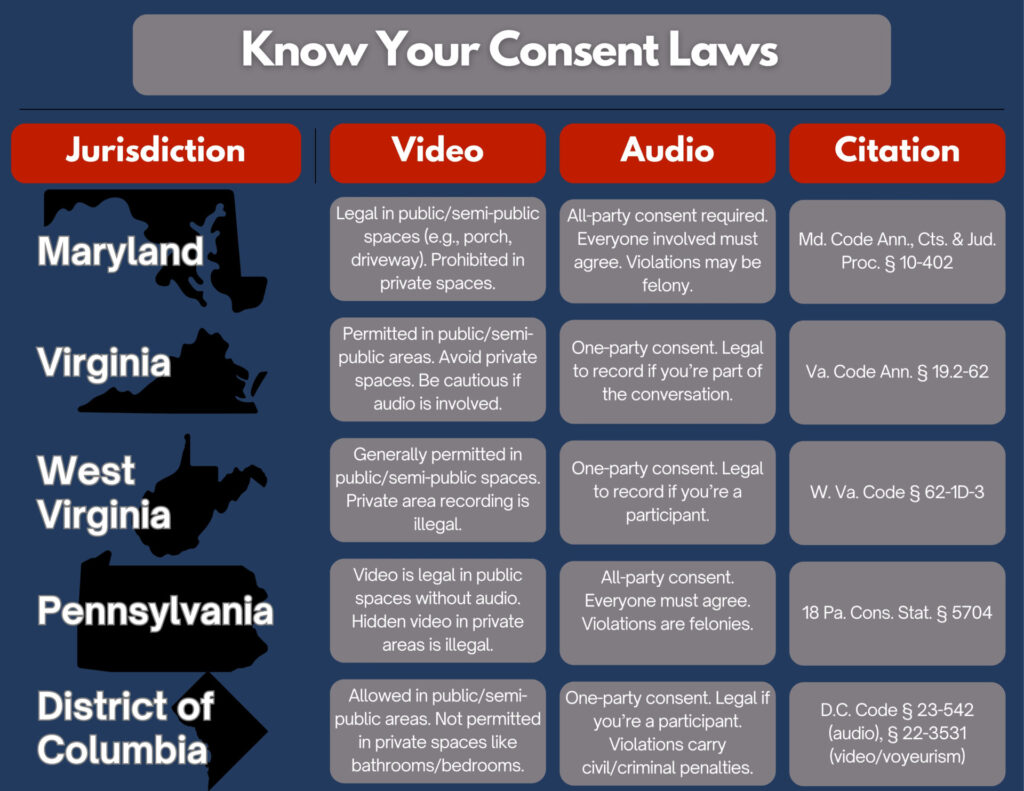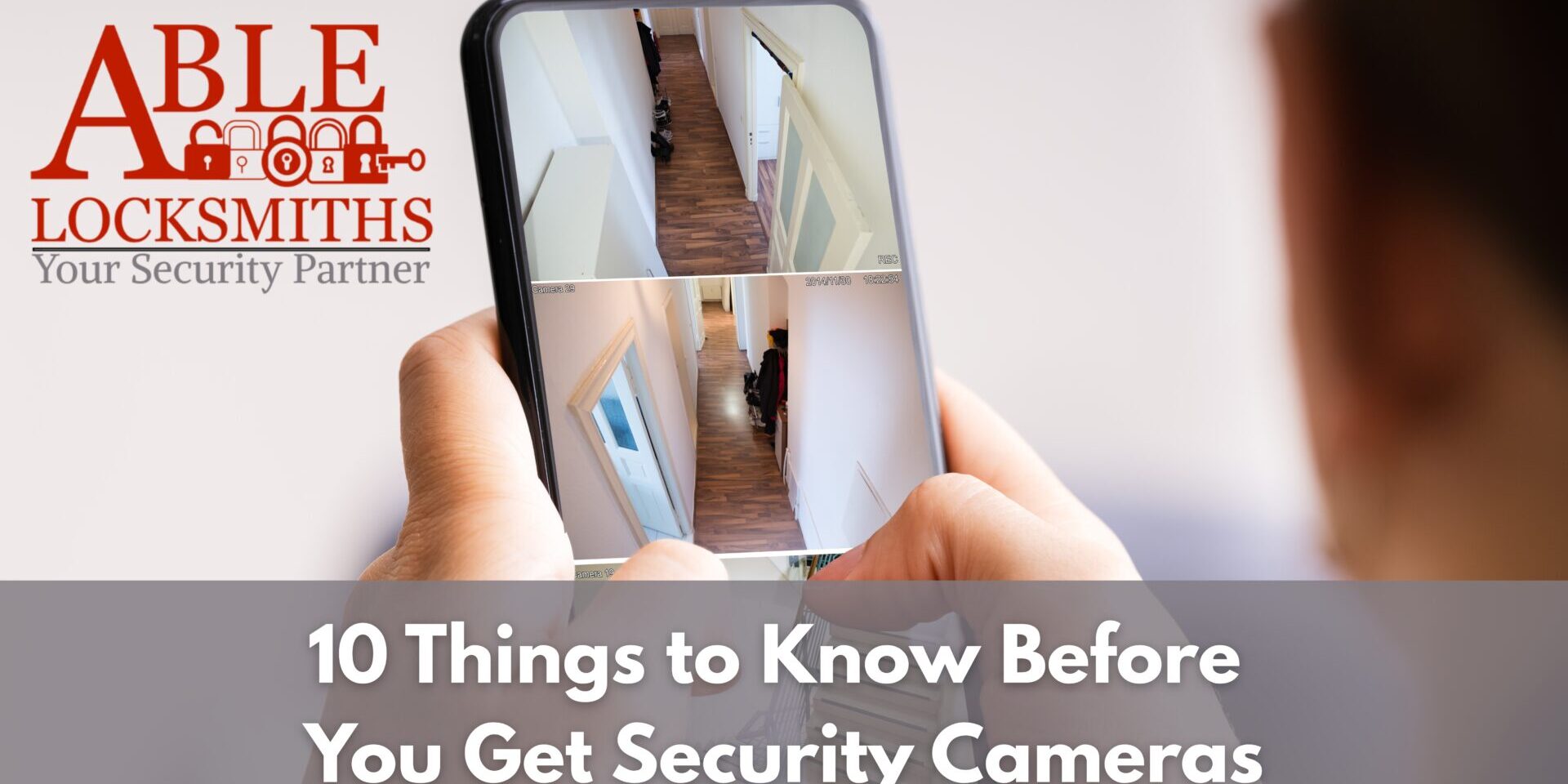Security Cameras: an essential tool in every security portfolio.
With rising concerns about theft, porch pirates, and neighborhood safety, more home and business owners than ever are investing in surveillance systems. But before you mount that shiny new camera over your door, there are a few legal and practical things you really need to know.
Here’s what everyone should understand before pressing “record.”
1. Your Location Matters More Than You Think
All states recognize a “reasonable expectation of privacy.” Sounds a wee bit subjective, no? Well, it’s rooted in federal constitutional law under the Fourth Amendment, as established in Katz v. United States (1967). Basically, the FBI recorded a phone call in a public phone booth without a warrant. The Court ruled the recording unconstitutional, because Katz had a reasonable expectation of privacy–even though the booth was in public. Many jurisdictions directly refer to this case in determining their interpretation of private spaces by using The Katz Test.
The Katz Test:
- Subjective expectation of privacy – the individual actually expects privacy.
- Objective expectation of privacy – society recognizes that expectation as reasonable.
Want a deeper dive? Let us know!
For now, here is how the jurisdictions in our region define this standard:

3. Do I Need Permission to Record?
You cannot place recording devices–audio or video–in bathrooms, bedrooms, or guest areas without consent—even inside your own home. This is especially important if you host short-term rentals or if you have paid staff come into your home or office (cleaning service, babysitter, etc.). While some jurisdictions only require one person consent, others require two person or all-party consent.
Here’s a quick breakdown for our region:

4. How Does This Affect Security Cameras?
Disclose Cameras in Rentals or Multi-Resident Homes
If you have roommates, tenants, or short-term guests, always disclose that cameras are in use—even if they’re only used for video without audio. Failure to do so could result in serious legal trouble.
5. Doorbell Cameras Can Capture the Street—but Not Too Much
You’re allowed to monitor your own property, but pointing a camera directly into a neighbor’s window? That’s likely to cross a legal or civil line—especially if it includes audio. Also, it’s just creepy. Don’t do that.
6. Signs Help Cover You Legally
Posting a small sign like “Audio and Video Surveillance in Use” at all entrances is a good habit—especially in all-party consent states. It strengthens your defense in the event of a dispute.
7. Beware of Audio Defaults
Many smart cameras have audio recording enabled by default. If you live in an all-party state, this could mean you’re unknowingly violating the law. Always check your camera settings after installation.
8. You Could Face Fines or Jail Time for Violating Audio Laws
Depending on where you live, illegal audio recording can lead to criminal charges, civil lawsuits, or both. In Maryland and Pennsylvania, this is often classified as a felony.
9. Public Areas = Fair Game (Usually)
Recording public-facing driveways, streets, or your front porch is generally allowed. Just be cautious about capturing private conversations that happen near your mic.
10. Always Check the Law Before You Record
If you’re unsure whether your setup is legal, check your state laws—or contact a local security professional. The safest option is to disable audio and post clear notice of any video surveillance in use.
🛠️ Final Tip: When in Doubt, Ask an Expert
Don’t risk your legal standing or your neighbor’s trust. A qualified locksmith or security professional can help you install and configure your surveillance system in a way that’s both safe and compliant with local laws.


